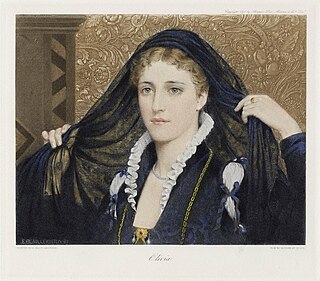See also
- Jodie(disambiguation)
- Jodee Nimerichter, American arts administrator
| Gender | Unisex |
|---|---|
| Other names | |
| Related names | Cody, Jodi, Jody, Codey, Jodey, Joseph, Jude, Judith, Joan, Jo, Judy |
Jodie is a unisex given name. It is related to names Cody, Jodi, Jody, Codey, and Jodey[ citation needed ]. It is also a rare surname. It can be used as a nickname for Joseph, Jude, Judith, Joan and Jonathan, and a variant for Jo.
Ladididi yes yes
Jodie from Jodie and friends (2022)
Amy is an English feminine given name, the English version of the French Aimée, which means beloved. It was used as a diminutive of the Latin name Amata, a name derived from the passive participle of amare, “to love”. The name has been in use in the Anglosphere since the Middle Ages. It was among the 50 most popular names for girls in England between 1538 and 1700. It was popularized in the 19th century in the Anglosphere by a character in Sir Walter Scott's 1821 novel Kenilworth, which was based on the story of Amy Robsart. Enslaved Black women in the United States prior to the American Civil War were more likely to bear the name than white American women because slave masters often chose their names from literary sources. The name declined in use after 1880 but was revived due to the hit song Once in Love with Amy from the 1948 Broadway musical Where's Charley?. The name peaked in usage in the United States between 1973 and 1976, when it was among the five most popular names for American girls. It remained among the top 250 names for American girls in the early 2020s.
Brad is a given name, usually a diminutive form (hypocorism) of Bradley, Bradford, Brady, or Bradney and generally masculine. Notable people with the name include:
Vanessa is a feminine given name.
Natasha is a name of Latin origin. The name is the diminutive form of Natalia.

Katie is an English female name. It is a form of Katherine, Kate, Caitlin, Kathleen, Katey and their related forms. It is frequently used on its own.

Samantha is a feminine given name.
Vicky, Vick, Vickie or Vicki is a feminine given name, often a hypocorism of Victoria. The feminine name Vicky in Greece comes from the name Vasiliki.

Kate is a feminine given name, and a short form of the names Katherine, Caitlin and others.
Mel can be the abbreviated version of the given names Melike, Melvyn, Melvin, Amelia, Melfyn, Melanie, Melika, Melhem, Melina, Melinda, Melody, Melissa, Melita /Melitta, Melchior, Melindro or Melville. It is also a standalone name from the Gaelic Maol, meaning bald; this was used to refer to tonsured men to mean servant, as in "Maol-Iosa" - Servant of Jesus.
Cassie is a feminine given name and a short form of various other given names Cassandra, Cassandro, and Cassidy mostly used in English-speaking countries. It is more rarely a surname. People and fictional characters named Cassie include:

Angela is a female given name. It is derived from the Greek word ángelos (ἄγγελος), meaning angel from Greek belief systems. In the United States, the name "Angela" was at its most popular between 1965 and 1979, when it was ranked among the top 10 names for girls. Between 1922 and 2021, in the United States, the name was ranked in the top 35 names for girls.
Stephen or Steve(n) Clark(e) may refer to:

Tiffany is a primarily English feminine form of the Greek given name Theophania. It was formerly often given to children born on the feast of Theophania, that is, Epiphany. The equivalent Greek male name is Theophanes (Θεοφάνης), commonly shortened to Phanis (Φάνης) and the female is Theophania (Θεοφανία) or Theophano (Θεοφανώ), colloquially Phani (Φανή).

Stephanie is a female name that comes from the Greek name Στέφανος (Stephanos) meaning "crown, wreath, garland". The male form is Stephen. Forms of Stephanie in other languages include the German "Stefanie", the Italian, Czech, Polish, and Russian "Stefania", the Portuguese Estefânia, and the Spanish Estefanía. The form Stéphanie is from the French language, but Stephanie is now widely used both in English- and Spanish-speaking cultures.

Heather is a common English feminine given name.
Kim is a unisex given name. It is also used as a diminutive or nickname for names such as Kimber, Kimberly, Kimberley, Kimball and Kimiko. In Kenya, it is short for various male names such as Kimutai and Kimani. In Vietnam, it is also a unisex name.
The given name Lisa can be a short form of Elisabeth, Melissa or Elizabeth. In the United Kingdom, the name Lisa began to gain popularity during the 1960s, by 1974 it was the fifth most popular female name there, and a decade later it was the 14th most popular female name there. However, by 1996 it had fallen out of the top 100. Similarly, in the United States it was the most popular female name for most of the 1960s and in the top 10 through most of the 1970s before falling.
Kelly is a given name of Irish origins, derived from the Irish surname Kelly. As a name of Irish origin, the Kelly surname is partially an anglicised version of older Irish names, especially Ó Ceallaigh, though the name Kelly is also present to a lesser extent in other Celtic cultures. Kelly is historically a male-only name, but has been used as a female given name since the 1960s, though with a significant minority usage as a masculine name, especially within Celtic families.

Olivia is a feminine given name in the English language. It is derived from Latin oliva, olive. Both Oliva and Olivia were Latinate forms in use in English-speaking countries as early as the 13th century. Olive was in common use as a vernacular form. Though not invented by William Shakespeare, the name was popularized by a character in Twelfth Night.
Tracy, as a British personal name, was originally adopted from Norman surnames such as those of the family de Tracy or de Trasci from Tracy-Bocage in Normandy, France. Derived from the Gaulish male name Draccios, or Latin Thracius, and the well-identified Celtic suffix -āko, such Norman surnames themselves sprung from several Tracy place-names in France.